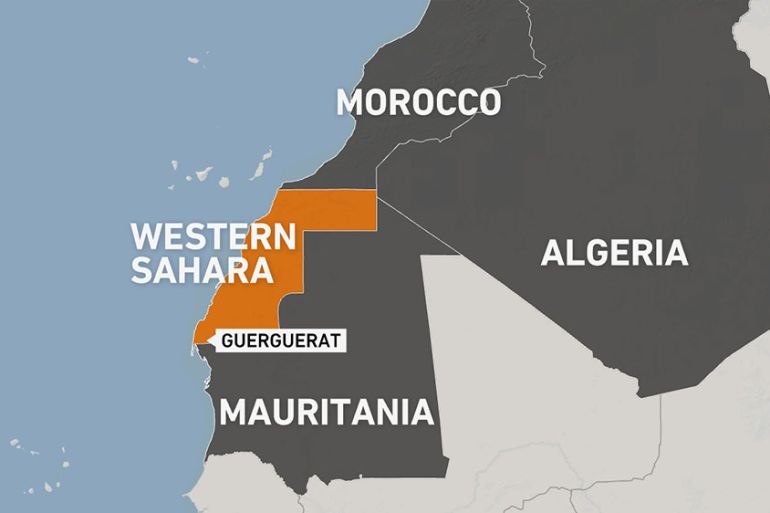Western Sahara conflict in 500 words
As part of the Israel-Morocco deal, the Trump administration agreed to recognise Morocco’s sovereignty over disputed territory of Western Sahara.

In a deal brokered by United States President Donald Trump’s outgoing administration, Morocco became the latest Arab country to normalise ties with Israel.
As part of the agreement announced on Thursday, Trump agreed to recognise Morocco’s sovereignty over the disputed territory of Western Sahara, where there has been a decades-old dispute with Morocco pitted against the Polisario Front.
Keep reading
list of 3 itemsIsrael, Morocco agree to normalise relations in US-brokered deal
‘Doesn’t serve Palestinians’: Israel-Morocco to normalise ties
The Algeria-backed breakaway movement Polisario Front seeks to establish an independent state in the region.
Western Sahara has been on the United Nations list of non-self-governing territories, a stance also taken by the African Union, the International Court of Justice (ICJ), as well as the European Union.
How the conflict began
The conflict ignited after Spain’s colonial withdrawal from the region in 1975, leaving Mauritania, Morocco and the Polisario Front in an entrenched conflict over its sovereignty.
The same year, the ICJ, while recognising Morocco and Mauritania’s historical ties to the area, filed an advisory opinion which stated those ties, which are central to Morocco’s sovereignty claim, did not amount to ownership over the territory.
The Polisario Front, which represents the Sahrawi Arab Democratic Republic from exile in Tindouf, Algeria, made peace with Mauritania in 1979.
But pockets of fighting with Morocco continued until 1991 when the two parties reached an agreement which called for a referendum to be held, while preserving the status quo of the time and the implementation of a UN-backed buffer zone.
After the 1991 agreement, Morocco controlled the majority of Western Sahara, a vast swath of desert on Africa’s Atlantic coast, which stretches little more than the size of Great Britain.
Among the areas under Rabat’s control are the region’s phosphate deposits and its fishing waters.
Referendum
To date, a referendum has not been held, with the main sticking points including the formation of electoral lists, especially since there have been attempts on both sides to shift the demographics in the area in a bid to influence the results.
The region is home to some 500,000 people, most of whom live in the capital, Laayoune.
After 1975, Morocco resettled hundreds of thousands of its citizens in Western Sahara, making up at least two-thirds of its inhabitants.
Following several failed rounds of negotiations over the years, the Polisario Front has been trying to garner renewed international support to reopen talks for a referendum.
But the UN has not identified a special envoy for the region in more than a year.
Reaction
“The stance … is a blatant violation of the United Nations charter and the resolutions of international legitimacy,” the Polisario Front said in reaction the US-Moroccan agreement, adding that the move “obstructs efforts by the international community to find a solution to the conflict”.
“This will not change an inch of the reality of the conflict and the right of the people of Western Sahara to self-determination,” the Polisario’s Europe representative Oubi Bchraya said earlier on Thursday. “The Polisario will continue its struggle.”
Senator Jim Inhofe, a member of Trump’s Republican Party, said the decision was “shocking and deeply disappointing”.
“The president has been poorly advised by his team,” Inhofe said. “He could have made this deal without trading the rights of a voiceless people,” he said, referring to the Sahrawi people.